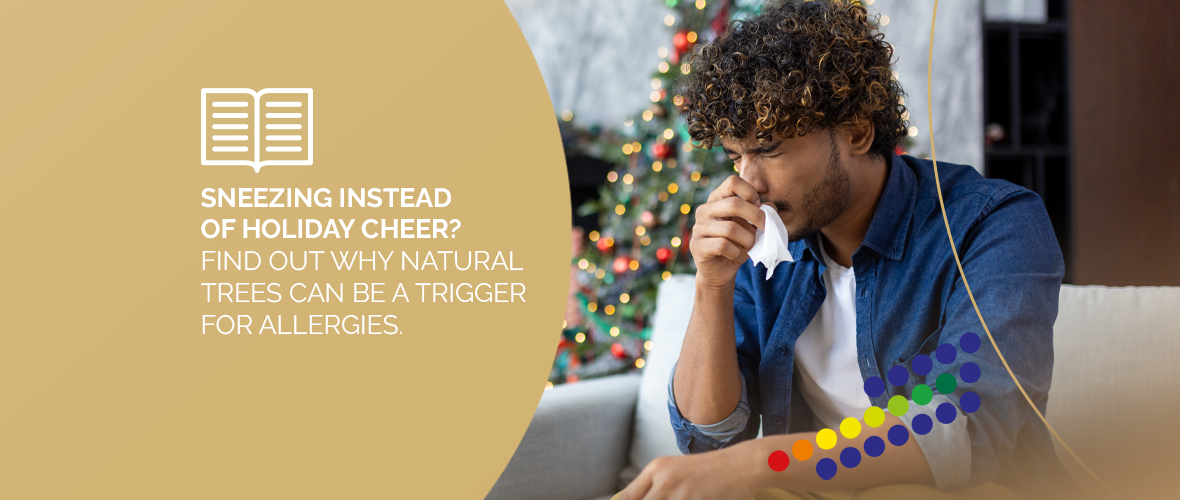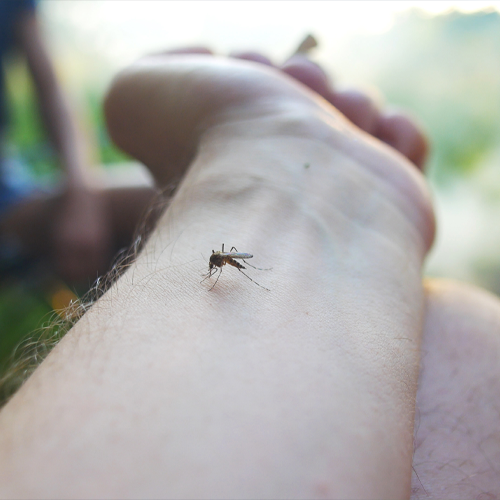SNEEZING INSTEAD OF HOLIDAY CHEER? FIND OUT WHY NATURAL TREES CAN BE A TRIGGER FOR ALLERGIES.

The holiday season brings with it a festive atmosphere, but for many, it can also trigger seasonal allergy-related discomfort. Respiratory allergies, in particular, can dampen holiday cheer. In this blog, we will explore the challenges that seasonal allergies, such as those caused by dust mites, present during the Christmas season. In addition, we will provide practical tips to minimize adverse effects and understand the underlying pathophysiology and immunology.
To understand seasonal allergies, it is essential to dive into their pathophysiology. Allergies, including respiratory allergies, are exaggerated immune responses to harmless substances, known as allergens. In the case of seasonal allergies, common allergens include pollen, mold spores and dust mites. During exposure to these allergens, the immune system reacts by releasing histamines and other mediators that trigger the characteristic symptoms of allergies, such as nasal congestion, sneezing and itching.
Mites: Little Intruders, Big Triggers of Allergies
Dust mites are microscopic creatures commonly found in indoor environments, such as pillows, mattresses and rugs. During the holiday season, when decorating activities are in full swing and more hours are spent indoors, exposure to dust mites can increase significantly. This can intensify respiratory allergy symptoms, affecting quality of life during the holidays.
Tips to Minimize Seasonal Christmas Allergies
1. Well-Ventilated Environments: Make sure indoor spaces are well ventilated. Use air purifiers if necessary to reduce the concentration of allergens in the environment.
2. Conscious Decorating: Some Christmas decorations, such as pine trees, can harbor mold spores. Clean and shake decorations before installing them to minimize exposure to these allergens.
3. Thorough Cleaning: Perform a thorough cleaning, paying special attention to areas prone to dust mite accumulation, such as carpets, curtains and bedding.
4. Avoid Excess Humidity: Control indoor humidity levels to discourage mite growth. Use dehumidifiers if necessary.
6. Use of products that help with allergies: BIRM is an immunomodulator
100% natural that regulates the exaggerated response of the immune system that causes allergies, so it is highly recommended in these cases.
Immunology and Immune Responses to Allergens
The immunology of seasonal allergies involves a specific immune response. The immune system of allergic individuals misrecognizes allergens as threats and triggers the release of inflammatory chemicals. The key to controlling allergies lies in understanding and modulating these abnormal immune responses.
Conclusions: Enjoying the Holidays without Respiratory Allergies
Seasonal allergies should not steal the magic of Christmas. With a thorough understanding of the pathophysiology and immunology involved, as well as the implementation of practical tips to minimize allergen exposure, it is possible to enjoy the holidays without the interference of allergic symptoms. The key lies in awareness and proactive action to create a healthy holiday environment.


